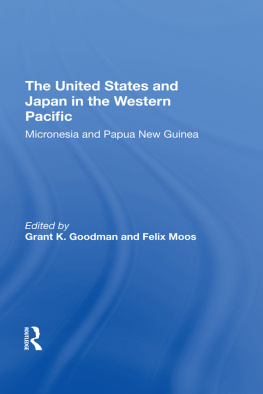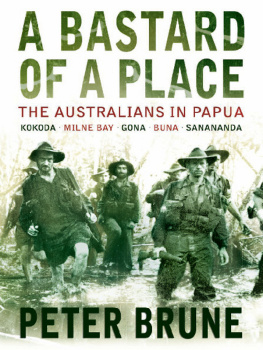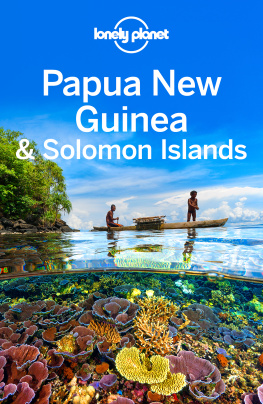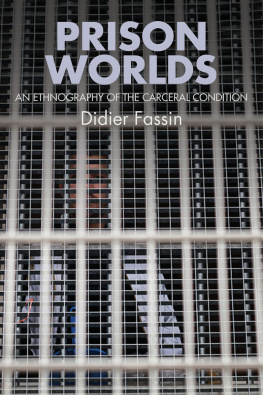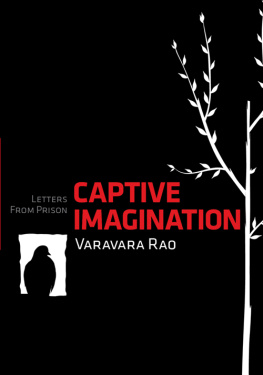First published in 2003 by
Berghahn Books
www.berghahnbooks.com
First paperback edition published in 2004
Reprinted in 2006
2003, 2004, 2006 Adam Reed
All rights reserved. Except for the quotation of short passages for the purposes of criticism and review, no part of this book may be reproduced in any form or by any means, electronic or mechanical, including photocopying, recording, or any information storage and retrieval system now know or to be invented, without written permission of the publisher.
Library of Congress Cataloging-in-Publication Data
Papua New Guineas last place : experiences of constraint in a postcolo nial prison / Adam Reed.
p. cm.
Includes bibliographical references and index.
ISBN 978-1-57181-581-1 (cl.: alk.paper) ISBN 978-1-57181-694-8 (pbk.: alk.paper)
1. Bomana Major Central Area Correction Institution (Port Moresby, Papua New Guinea) 2. Prisons--Papua New Guinea. 3. Prison psychology--Papua New Guinea. 4. Prison discipline--Papua New Guinea. 5. Prisoners--Papua New Guinea--Social conditions. I. Title
HV9916.5 .P677 2003
365.99545 21
2003052213
British Library Cataloguing in Publication Data
A catalogue record for this book is available from the British Library
Printed on acid-free paper
ISBN 978-1-57181-581-1 hardback
ISBN 978-1-57181-694-8 paperback
Acknowledgements
This book is based on fourteen months (from October 1994 to December 1995) fieldwork in Port Moresby, Papua New Guinea. It would not have been possible without the support and cooperation of prisoners and staff at Bomana Major Central Area Correctional Institution. I remain immensely grateful for the insight inmates gave me into gaol life and the ordeal of living in Papua New Guineas last place. The men and women I met wanted their stories to be told and their names to be published (I have not used pseudonyms). In particular, I wish to thank Alex Aputi, Max Manale, Abui Oba, Laurence Martin, Mosley Bore, Fred Heni, Aumari Ai, Lucas Pena, Kapal Wai, Simon Kaluwin, Ted Lahui, Johnson Yawa, Winston Pondo, George Hetau, Bala Vele, Andrew Aisa, Billy Kawa, Caspar Goro, Larry Jack, Joe Pondo, Napoleon Allen, George Kalupi, Ebon Kasagoraga, Antony Ume, Timothy Kola, Ann Laiam, Clara Poia, Mary Pulah, Rose Maia and the late Kenneth Baupo. Thanks to Stuart Fancy for the tea and biscuits, and the conversations about home. For their assistance, patience and continued friendship, I am most indebted to Jerai Bawai and Jeffrey Malepo. Among the staff at Bomana, I especially wish to thank Michael Joseph and Ned Gong, but also Geoffrey Moduwa, Napoleon Koda, Henry Levi, Alfred George Noine, Agatha Peng, Ito Fareho, Jacqueline Makon, Ericton Sariri and Julie Aka. As well as a supportive contact, Cyprian Wunum was a good friend; I am grateful to him and his family for all their hospitality. For permission to work at Bomana, I must thank the then Commissioner Sam Nuakona and the then gaol commander Geoffrey Niggins. At Correctional Institution Service headquarters in Port Moresby, I am grateful to Philip Eka; without his guidance, support and enthusiasm I am not sure the project would ever have gained approval.
During my time in Port Moresby I lived with the Dominican community of St Martins Priory at the Bomana Catholic Seminary (a ten-minute walk from the gates of the prison complex). Everyone at that house welcomed me with great warmth and made me feel at home. I wish to express particular thanks to Father David Halstead for the invitation, his many kindnesses and the eagerly awaited Sunday meal! It is with much affection that I now recall our many conversations. My appreciation is extended to the late Father Ambrose Loughton, Brother Noah, Brother Francis and Brother James. I also wish to thank the members of the Passionist community, especially Father Kevin Henessey and Brother Caspar, and my seminarian friend Brother (now Father) Alphonse. In Port Moresby city I remember with fondness the friendship of Cecilia Ronderos and her family. Finally, I should like to thank Cyndi Banks for her assistance, kind hospitality and intellectual company during my time there and since.
I am grateful to the Papua New Guinea Post-Courier newspaper in Port Moresby for permission to reproduce images from the front page of one of their issues and to Jada Wilson for agreeing to draw the cartoon illustrations. Melissa Vieceli is owed special thanks for stepping in and redrawing the map illustrations at such short notice. The expense of fieldwork was made possible by grants from various bodies at the University of Cambridge: the Smuts Memorial Fund, Bartle Frere Fund, Antony Wilkin Fund, Eddington Fund and William Wyse Fund. In addition, I received monies from the Emslie Horniman Fund, administered by the Royal Anthropological Institute. For financial support throughout fieldwork and the period of writing-up, I am grateful to the officers of the Prince of Wales Scholarship Fund, at the Cambridge Commonwealth Trust and to Trinity College, Cambridge. Further support came from a postdoctoral research fellowship at Clare College, Cambridge.
For her guidance and support throughout this project, I will always be indebted to Marilyn Strathern. Despite sometimes acting as a bit of a loose body, I remain very aware of everything she has done for me. I am also deeply indebted to Tony Crook, Eric Hirsch and Annelise Riles. There are many other friends and colleagues to whom I owe a great deal: Sarah Green, Andy Holding, Rupert Houghton, Julia Lawton, Robert Marsh, Nick Mellor, Hiro Miyazaki, Barbara Placido and Karen Sykes. I am grateful to Michael OHanlon for providing a forum to meet other anthropologists working in Melanesia and to Sean Kingston for his editorial comment. I would also like to thank Debbora Battaglia, Don Brenneis, Sinclair Dinnen, Keith Hart, Stuart Kirsch, James Leach and Peter Fitzpatrick. For their constant support, I thank my parents (to whom this book is dedicated) and my sisters. Finally, I thank Shari Sabeti for her love and patience (and tireless editing).
Prologue
The last place
Talk drifted once more, our attention diverted by the sight of new inmates entering Bomana. Bewildered, these men ran, stumbled and hurried again, propelled forward by the weight of warders shouts and insults. They ran bare-chested, sweating, with civilian shirts and shoes earlier removed for inspection clasped awkwardly in their arms. On their heads they seemed to carry too much hair. The men passed on, out of sight, to the reception office and we returned our attention to the interview. This time the convict before me wore a different, more puzzling expression; the face of his round and shaven head revealed both smile and frown. This, this is the last place, he muttered, the very last place in the country. The convict paused and surveyed the compound yard around us, as if to confirm that he was indeed talking about the prison. Here, he continued, everything is left behind. There is no beer or tobacco, no women. You cannot see your forest, your rivers, mountains and rocks. You cannot see your children. In this kind of place you are abandoned. These sad thoughts were followed by silence. Then he straightened, cleared his throat and returned the conversation to an earlier inquiry.


